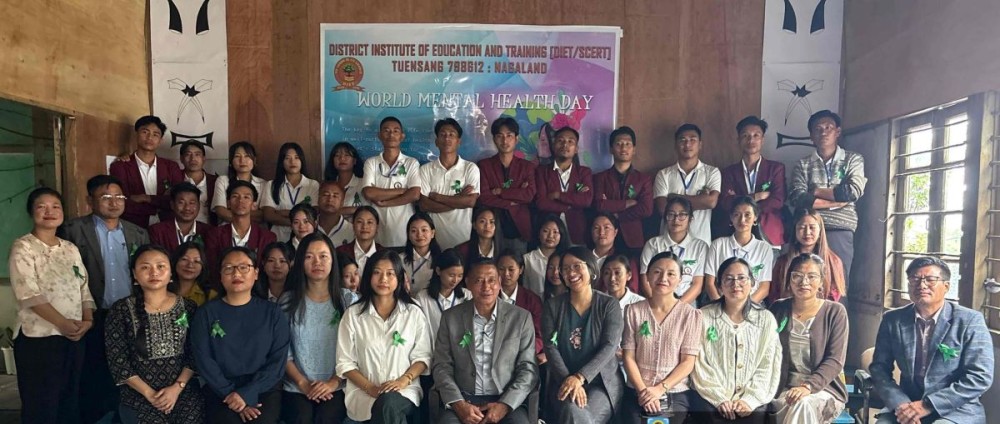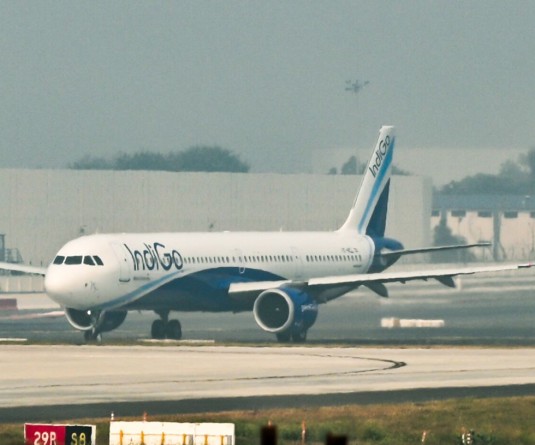Participants of World Mental Health Day at DIET Tuensang on October 10.

DIMAPUR, OCTOBER 10 (MExN): World Mental Health Day 2025, observed under the theme “Access to Services: Mental Health in Catastrophes and Emergencies,” was marked across various districts of Nagaland on October 10 with awareness programmes, counselling sessions, and community events aimed at promoting mental well-being and highlighting legal rights and services for persons with mental illnesses.
In Dimapur, the programme was organised by the District Mental Health Programme (DMHP) in collaboration with the Dimapur District Legal Services Authority (DDLSA) at Chapel Hall, District Hospital.
Psychiatric Nurse Mughali Zhimomi highlighted the importance of ensuring mental health services as essential during emergencies, while Panel Lawyer Moatila Ao sensitized participants on the Rights of Persons with Disabilities Act and legal schemes for persons with mental illness. The event featured personal testimonies from counselors and patients, cultural performances by Missionaries of Charity, and a Zumba dance session by Trionix Dance Studio to promote stress relief. The programme was chaired by Panel Lawyer Visheli Yepthomi, with invocation prayer led by Rev Yhunlo Thong and exhortation by Dr Toska Chishi.
In Wokha, a marathon race was organised by DMHP in collaboration with Wokha District Legal Services Authority. The race, flagged off by Dr Mhonchan N. Kithan, Medical Superintendent, District Hospital Wokha, aimed to raise awareness on mental health issues during disasters and emergencies. Winners were felicitated by SDO (Civil) Echungbemo Erui. Psychiatrist Dr Wothungo Jami spoke on the importance of accessible mental health care and called for an end to stigma against persons with mental illness. The programme was chaired by Clinical Psychologist Amenla Longkumer, with vote of thanks by Panel Lawyer Shanchobeni P. Lotha.
At DIET Tuensang, the observance included a keynote address by Dr Renemlila, Lecturer, on understanding mental health through the “three C’s” – Causes, Consequences, and Control – and the role of educators in fostering resilience. Principal Peter Libenthung highlighted empathy and emotional well-being, while students presented a cultural performance. The programme included a mindful breathing exercise and concluded with the slogan, “Mental health matters even in the midst of chaos.”
In Mokokchung, the programme at DMPH Treatment Centre, organised by DMHP, featured an exhortation by Dr Ademla Tinu, Medical Superintendent (IMDH), emphasizing that mental health is integral to overall health and must be addressed to maintain productivity and social well-being. Dr Limanaro, DPO (UIP & RCH), highlighted the inseparable link between mental and physical health and encouraged open discussions to break stigma. Testimonies from patients were shared, and the event was chaired by Tiakala Lemtur, Community Nurse, DMHP.
The series of events across the state brought together patients, caregivers, health professionals, educators, and community members, reinforcing the need for accessible mental health services and community support, particularly during emergencies and crises.
Tele MANAS launched in Kohima
On the occasion of World Mental Health Day 2025, S. Tainiu, Secretary, Health & Family Welfare, Nagaland, officially launched the Video Consultation of Tele MANAS at the Directorate of Health & Family conference hall.
Tele MANAS, a Government of India initiative, provides free 24/7 tele-mental health services, including counselling, psychotherapy, and psychiatric consultations via toll-free number 14416 and a mobile application. It forms the digital component of the National Mental Health Programme (NMHP) and links users to in-person services when needed.
Speaking on the occasion, Tainiu said this year’s theme underscores the importance of mental health support during crises such as natural disasters, conflicts, and pandemics. She highlighted that emergencies often cause trauma, anxiety, depression, and insomnia, yet mental health remains one of the most neglected aspects of disaster response.
Emphasizing Nagaland’s vulnerability to landslides, floods, and occasional community tensions, she called for raising awareness, reducing stigma, promoting early detection and intervention, and ensuring accessible, culturally sensitive mental health services. Tainiu concluded that no one should face mental health challenges alone and urged collective action to provide support in times of crisis.




.jpg)

